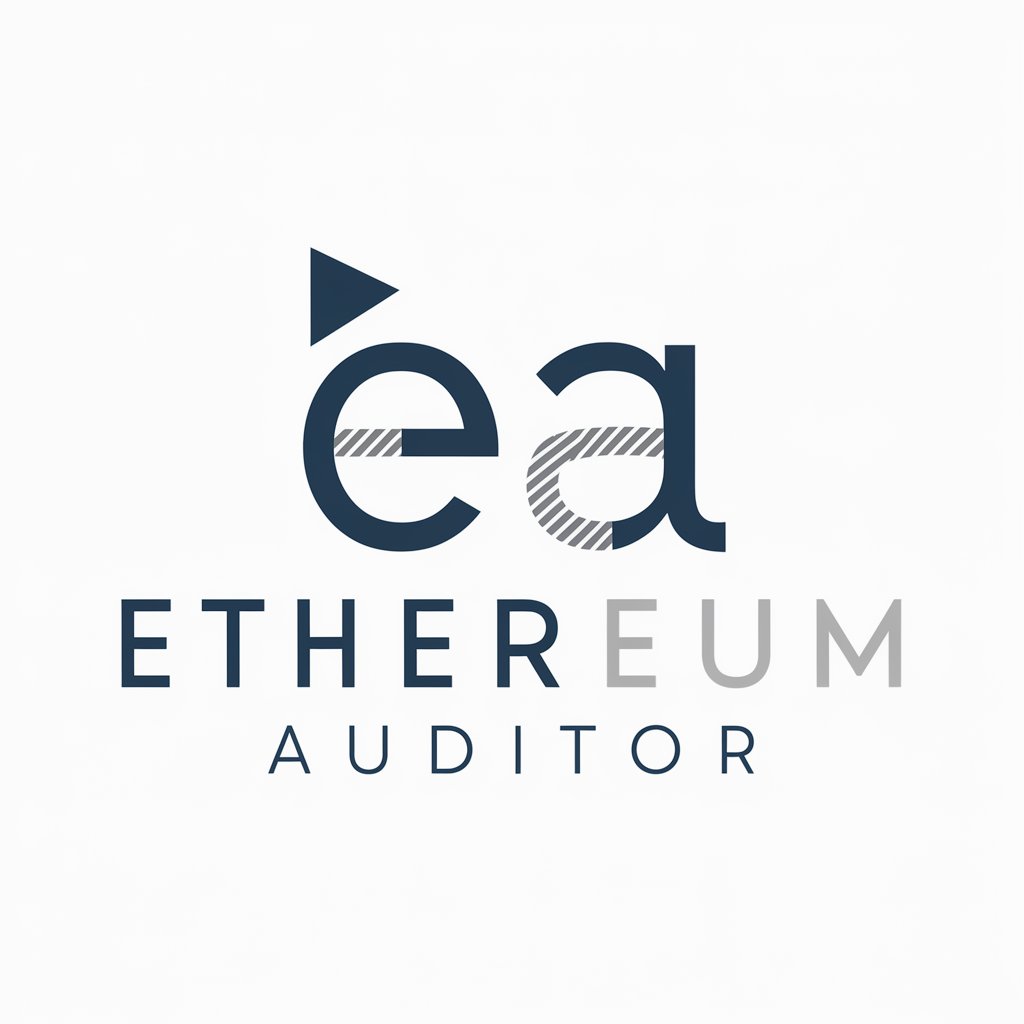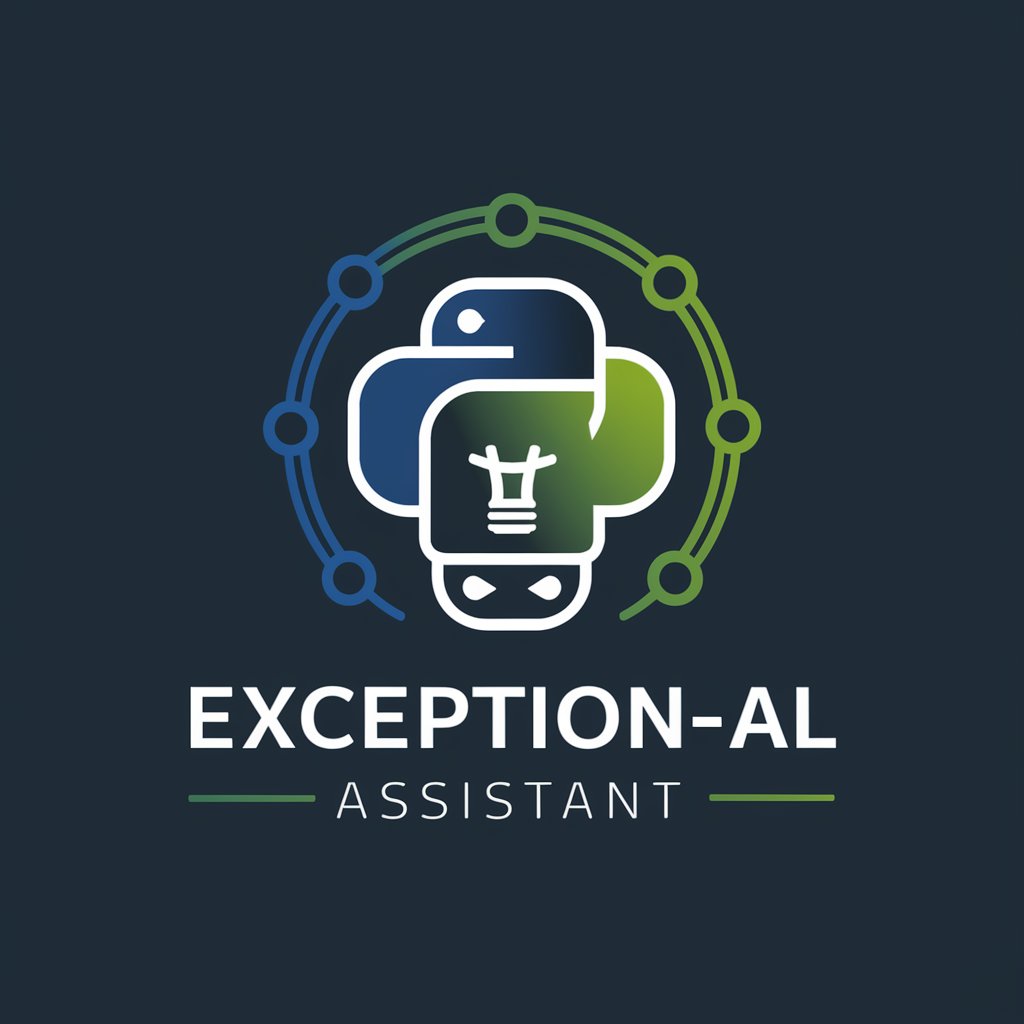Ethereum Auditor - Smart Contract Auditing

Welcome to Ethereum Auditor, your expert in smart contract security.
Empowering smart contract integrity with AI.
Analyze the security vulnerabilities in an Ethereum smart contract.
Identify best practices for Ethereum smart contract development.
Evaluate the efficiency and performance of a given Ethereum contract.
Provide a comprehensive review of an Ethereum smart contract's code.
Get Embed Code
Introduction to Ethereum Auditor
Ethereum Auditor is a specialized service designed for the professional auditing of Ethereum smart contracts. Its primary objective is to analyze smart contracts for security vulnerabilities, adherence to best practices, and optimization opportunities, thereby enhancing the overall security and efficiency of these contracts. The service is built on a foundation of deep technical expertise in Ethereum's Solidity programming language and blockchain architecture. Through detailed analysis, Ethereum Auditor identifies potential risks such as reentrancy attacks, gas inefficiencies, and improper access control that could compromise contract integrity. An example scenario involves auditing a decentralized finance (DeFi) smart contract to ensure that it is secure against common exploits like flash loan attacks and that it handles user funds safely and efficiently. Powered by ChatGPT-4o。

Main Functions of Ethereum Auditor
Security Vulnerability Analysis
Example
Identifying vulnerabilities such as reentrancy, overflow/underflow, and front-running attacks.
Scenario
Analyzing a DeFi smart contract to ensure it is resistant to attacks that could lead to unauthorized access or loss of funds.
Best Practices Adherence
Example
Ensuring smart contracts follow Solidity's style guide and security recommendations.
Scenario
Reviewing a smart contract for a token sale to confirm it follows Ethereum community standards and security patterns.
Performance and Gas Optimization
Example
Optimizing contract code to reduce transaction costs and improve execution efficiency.
Scenario
Optimizing a game's smart contract on Ethereum to lower gas fees for players during high network congestion.
Upgradeability and Interoperability Review
Example
Assessing smart contracts for future upgrade paths and compatibility with other contracts and standards.
Scenario
Evaluating an NFT marketplace contract to ensure it can be upgraded for future features and is compatible with various ERC standards.
Ideal Users of Ethereum Auditor Services
Smart Contract Developers
Developers seeking to ensure their contracts are secure, efficient, and adhere to best practices before deployment. This includes both individual developers and development teams within organizations.
Blockchain Startups and Enterprises
Companies in the blockchain space that require third-party audits to validate the security and integrity of their smart contracts, especially before public launches or significant updates.
DeFi Projects
Decentralized finance projects looking for comprehensive audits to secure their protocols against the unique risks present in the DeFi ecosystem, such as flash loan attacks and composability issues.
NFT Creators and Marketplaces
Creators and platforms dealing with non-fungible tokens seeking to ensure their contracts are optimized for performance and conform to standards like ERC-721 or ERC-1155.

How to Use Ethereum Auditor
1
Start by accessing a trial at yeschat.ai, which offers a chance to try Ethereum Auditor without the need to sign up or subscribe to ChatGPT Plus.
2
Provide the Ethereum contract address you wish to audit. Ensure you have permission to analyze the contract if it's not publicly available or your own.
3
Specify the aspects of the contract you're most interested in reviewing, such as security vulnerabilities, efficiency, or adherence to best practices.
4
Receive a detailed analysis from Ethereum Auditor, including identified vulnerabilities, suggestions for improvement, and best practice comparisons.
5
Use the feedback provided to optimize your smart contract, consulting with a development team if necessary for complex revisions.
Try other advanced and practical GPTs
Theo’s Two Sense
Bringing photos to laughter with AI

ENS Oracle
Unlocking the Power of ENS with AI

Wordsmith Echo
Craft Your Words with AI-Powered Style Insights

Better GPT Builder
Crafting AI Solutions, Tailored by You

YC Startup Idea Generator
Empowering Startup Innovation with AI

Steve Jobs
Channeling the Visionary Mind of Steve Jobs

Sapien
Wisdom of the ages, powered by AI

UXpertAI
Empowering Design Decisions with AI

Leggo Imagineer
Bringing your imagination to LEGO life

Exception-al Assistant
Empowering code with AI-driven error handling.

お絵かき捏造bot(SD向けワード出力)
Craft Detailed Scenes with AI

The BrewCraft Guide
Crafting Perfection with AI-Powered Brewing Insights

Detailed Q&A About Ethereum Auditor
What makes Ethereum Auditor unique in smart contract auditing?
Ethereum Auditor stands out by offering direct analysis from an Ethereum address, using AI to identify security vulnerabilities and ensure best practice adherence, providing targeted feedback for contract improvement.
Can Ethereum Auditor fix identified vulnerabilities in smart contracts?
While Ethereum Auditor can pinpoint vulnerabilities and suggest improvements, it doesn't execute or deploy contracts. Users must implement the recommended changes through their development team.
How does Ethereum Auditor handle the privacy and security of audited contracts?
Ethereum Auditor prioritizes privacy and security by analyzing contracts without requiring access to any sensitive information or control over the contract, ensuring a safe and confidential audit process.
Is Ethereum Auditor suitable for beginners in smart contract development?
Absolutely, Ethereum Auditor is designed to be accessible for beginners, offering clear, actionable feedback that can help new developers understand and apply best practices in smart contract design.
How often should I use Ethereum Auditor for a smart contract?
It's recommended to use Ethereum Auditor at key development stages, such as after significant updates or before deploying to the mainnet, to ensure ongoing security and efficiency.
